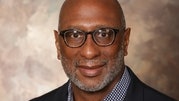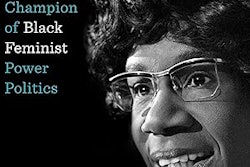One of the stark realities of growing older is the inevitable experience of increasingly grappling with the death of loved ones. For me, this experience is not only related to family members and close friends, but also to mentors, especially my former HBCU professors. Over the last several years, most of my former HBCU professors have passed away, and this has saddened me deeply. As I reflect on their legacy, the label “superheroes” describes these professors in that their power and abilities at fostering and facilitating positive human transformation were immensely phenomenal. Their extraordinary capabilities were fueled by their unyielding commitment to uplifting Black people and others through higher education praxis. They also were passionately dedicated to ensuring that the students they taught were imbued with the same commitment they had to racial and social justice, and personal excellence.
 Dr. Jerome H. Schiele
Dr. Jerome H. Schiele
My parents and others in our community were enormously aware of and influenced by the horrific consequences of this presumed inferiority. They grew up in racial segregation and witnessed first-hand both the personal and political injustices of such a cruel and callous social system. For them, HBCUs were a major and necessary part of the overall struggle for racial justice and human affirmation. As I was growing up, there was no ambivalence about where I would attend college: it would be an HBCU. Indeed, all my higher education training was at HBCUs — first North Carolina A &T, then Hampton, and finally the Mecca, Howard. At each of these universities, my life was profoundly transformed by my superheroes.
When I think about the transformational power of my HBCU superheroes, three important themes come to mind: 1) they demonstrated an ethic of caring and sharing; 2) they exhibited a strong commitment to improving and advancing Black families and communities; and 3) they believed in and elicited the positive potential in all students, even and especially for those who initially showed little promise.
My HBCU professors consistently demonstrated and modeled an ethic of caring and sharing. They were very concerned about my wellbeing not only as a student but holistically, and they were willing to share their advice, wisdom, and material resources. Their guidance and advice included lessons that focused on life generally and assisted me in better knowing myself and how to navigate the personal challenges that life often brings. They not only shared their personal observations but also their experiences, which were extremely helpful to me because it added a subjective dimension to the educational process. Additionally, sharing their personal observations and experiences helped me to engage in critical self-reflection that ultimately, with their assistance, guided me on the path to greater clarity and specificity about my overall life and career goals. Essentially, my superheroes’ ethic of caring and sharing created a learning milieu that nurtured my total self-development.
My HBCU superheroes’ mentorship also reflected and affirmed a strong commitment to improving and advancing Black families and communities through their higher education roles and activities. In other words, they understood that “Black Lives Mattered” and for them to really matter, these professors maintained that advocacy and activism must be critical aspects of one’s professional mission and practice. They understood that there was a significant and symbiotic relationship between the individual and communities they served. These mentors rejected insular individualism and strongly encouraged the value of collectivity. This value is captured in the African proverb, “I am because we are and because we are, therefore I am.” With collectivity as their foundation, these mentors emphasized that “to whom much is given, much will be required” and that advancing Black families and communities was high priority.
The focus on Black families and communities also acknowledged the important role racism plays in the lives of Black folks. The mentoring of my HBCU superheroes reinforced the notion that racism was America’s major social problem, and that it, both alone and working through other factors, adversely affected Black lives and their families and communities. They challenged the popular “declining significance of race” paradigm promoted by many but especially by sociologist William Julius Wilson. They understood that gains from the modern-day Civil Rights Movement did not reduce racism’s significance but rather caused racism to mutate and express itself in new, more subtle, and insidious ways.
My HBCU professors also believed in eliciting the positive potential in all students, even and especially for those who initially showed little promise. They understood how systemic racism produces deleterious consequences for Black people’s hopes and dreams. They acknowledged that a key component of American racism was the erroneous belief in the intellectual inferiority of Black people and, unfortunately, how Black people were at risk of internalizing this belief. These professors especially recognized how this belief, when internalized by Black children and adolescents, could lead to substantive academic problems and a repudiation of academic interests and excellence. Although they acknowledged the inimical consequences of white supremacy, these professors did not emphasize Black people’s deficits. Rather, they embraced and promoted a “strengths perspective” that accentuated the positive aspects of human potential and possibility. Guided by this educational model, my HBCU superheroes were talented in turning water into wine, in seeing the potential in their students and applying transformational methods to elicit the best academic performance possible.
My superheroes represented the best of the HBCU tradition, which largely has provided educational opportunities to uplift and transform the lives of those who have been racially marginalized. Although this focus has primarily centered on African American students, HBCUs have transformational capabilities and opportunities for all students. These institutions have offered the best examples of inspiring students towards excellence despite previous and continued experiences with racial and other forms of adversity. They essentially instill hope and enhance the confidence of those seeking not only to better themselves, but also who strive to overcome and shatter the appalling injustices of systemic dehumanization. That's the HBCU way!
- Dr. Jerome H. Schiele is Professor and Chair of the Ph.D. Department in the School of Social Work at Morgan State University.



















